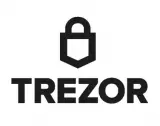Bitcoin Wallets
What’s a Bitcoin Wallet?
Imagine a Bitcoin wallet as a special keychain, not a place to stash your actual bitcoins. It holds the secret codes you need to access and manage your Bitcoin on the blockchain, which is like a giant digital ledger recording all Bitcoin transactions.
How does it work?
Your wallet is like a safe deposit box. It keeps two important keys:
- Public Key: This is like your bank account number, visible to everyone. It lets people send you Bitcoin.
- Private Key: This is top secret, like your PIN. It proves you own the Bitcoin you want to spend.
Remember, your Bitcoin doesn’t actually live in the wallet. It exists on the blockchain network, and your wallet is just the tool that lets you interact with it.
Different Types of Wallets
Wallets come in different shapes and sizes: mobile apps, desktop software, hardware devices (kind of like USB sticks), and even paper wallets. Each has its pros and cons when it comes to security and convenience.
Bitcoin Wallet FAQs
How do they work?
Wallets create and store your private keys to sign transactions and prove you own the Bitcoin. They also give you a unique public address to share with others so they can send you Bitcoin.
Are there different types?
Yup! Software wallets, hardware wallets, paper wallets, online wallets, and custodial wallets (where a third party holds your keys for you).
What’s a seed phrase?
It’s a list of words your wallet generates as a backup for your private keys. Guard it with your life – losing it means losing access to your Bitcoin.
Can I have more than one?
Absolutely! It’s a good idea to spread your Bitcoin across a few wallets for added security.
Are they anonymous?
Not really. Bitcoin transactions are public, but you can take steps to improve your privacy.
What if I lose my wallet?
If you don’t have a backup of your keys or seed phrase, you’re out of luck. Backups are crucial!
Are they secure?
They use encryption and other security measures, but how secure they are also depends on the type of wallet and how you use it.
Can I use them for other cryptocurrencies?
Some wallets are Bitcoin-only, while others support multiple cryptocurrencies. Choose one that fits your needs!
Let's stay in touch!
Sign up for our community update mailing list to stay informed.
Copyright 2025 | Powered by Coding4u



